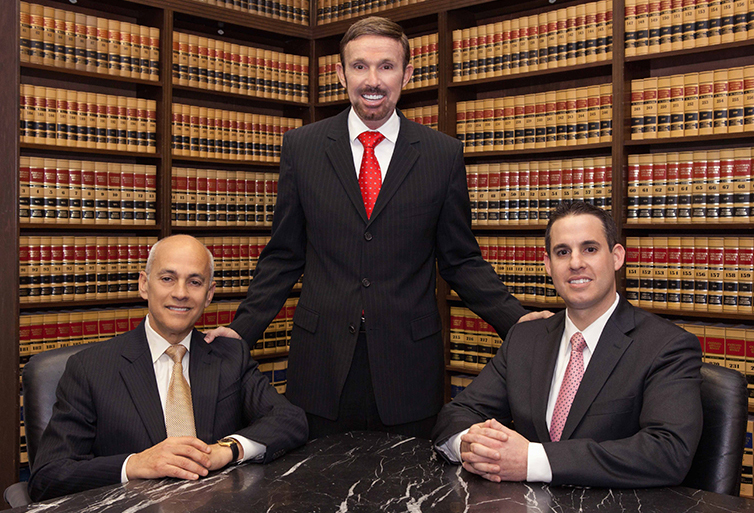Child Dependency Court Process
You can become involved with the child dependency court process if you are suspected of abuse or neglect of your child and are reported to the Department of Social Services. Many times the report to the Department of Social Services is made by a mandated reporter, like a doctor or teacher, who is required to report any suspected incident of abuse.
After you have been reported, the Department of Social Services will investigate the abuse claims. If the Department of Social Services finds that the child is not safe in your home, they will file a petition for the child to be deemed a “dependent of the court” and taken from your physical custody. Having your child taken from your custody will be a painful and traumatic situation for you as a parent. Our attorneys at Wallin & Klarich are here to help prevent your child from being permanently removed from your care.
When Your Child Can Be Made a “Dependent of the Court”
Under the California Welfare and Institutions Code 300, your child can be deemed a dependent of the court in any of the following circumstances:

• The child has suffered, or there is a substantial risk that the child will suffer serious physical harm. This can be shown by a history of abuse or your actions as a parent.
• The child has suffered, or there is a substantial risk that the child will suffer, serious physical harm or illness, as a result of inadequate supervision or your willful or negligent failure to provide the child with food, clothing, shelter or medical treatment.
• The child is suffering serious emotional damage, or is at risk of suffering serious emotional damage, due to you not providing appropriate care. This can be shown through the child’s anxiety, depression, withdrawal or aggressive behavior.
• The child has been sexually abused, there is a substantial risk that the child will be sexually abused, or you failed to stop sexual abuse of the child when you knew or should have known about the abuse.
• The child is under the age of five years old and has suffered severe physical abuse by you or any other person that you knew or should have known was abusing the child. Severe physical abuse refers to any act of abuse that causes physical trauma that could cause permanent disfigurement, disability or death. It also includes any sort of physical or sexual abuse that resulted in bleeding, bruising, or significant swelling.
• You caused the death of another child through abuse or neglect.
• The child has been left without any provision for support. This could occur when you are have been incarcerated and are unable to arrange for the care of the child.
• You have freed the child for adoption for 12 months by relinquishment of parental rights, or because your parental rights were terminated.
• The child has been subject to extreme acts of cruelty in the home.
Court Hearings After Child is made a “Dependent of the Court”
If the child is taken from your custody, and deemed a “dependent of the court,” the court will hold an initial detention hearing, where the court will decide if it is in the best interest of the child to stay with you or be kept in the custody of Social Services. If the court finds that it is not in the best interest of the child to remain in your custody, you will be given a jurisdiction hearing, where you can describe your side of the story. If the child is still not allowed to return home with you, the court will hold a disposition hearing, where the judge will make a future plan regarding your case and the custody of your child. The dependency process can be lengthy and complex. The family law attorneys at Wallin & Klarich are here to provide legal support and assistance to ensure that you achieve the best possible outcome.
Child Dependency Reunification Plans
The child dependency process often results in you being separated from your children for a lengthy period of time. It is a very painful time in your life for both you and your children. A reunification plan, also known as a case plan, is an example of the court’s attempt to keep families together. At Wallin & Klarich we can assist you through the court process to create a reunification plan that will keep your child in a safe environment and work to reunite you with your child.
A reunification plan includes tasks and recommendations for you to follow as a parent in order to regain custody of your child. The reunification plan may require you to:
• Attend parenting classes
• Attend drug and alcohol counseling
• Attend domestic violence counseling
• Attend family counseling
The reunification plan may also include visitation requirements for you to follow while you do not have custody of your child. If the court finds that you have complied with the terms of the reunification plan, the court may order that the child be returned to your custody. A reunification plan is an important tool that can assist you to keep your family united.
Contact Wallin & Klarich Today
If you have been reported for suspected abuse or neglect, it is important that you contact  an experienced team of dependency attorneys. Not only can the child dependency attorneys from Wallin & Klarich provide you with legal support, but we understand that the child dependency process can be extremely painful for both you and your child. Our firm has over 30 years of experience and want to assist you to gain custody of your child.
an experienced team of dependency attorneys. Not only can the child dependency attorneys from Wallin & Klarich provide you with legal support, but we understand that the child dependency process can be extremely painful for both you and your child. Our firm has over 30 years of experience and want to assist you to gain custody of your child.
With offices located in Los Angeles, Orange, Riverside, San Bernardino, San Diego, Victorville, West Covina, Sherman Oaks, Torrance and Ventura , there is a Wallin & Klarich attorney available wherever you happen to live.
Call us today at (888) 749-7428. We will get through this together.
